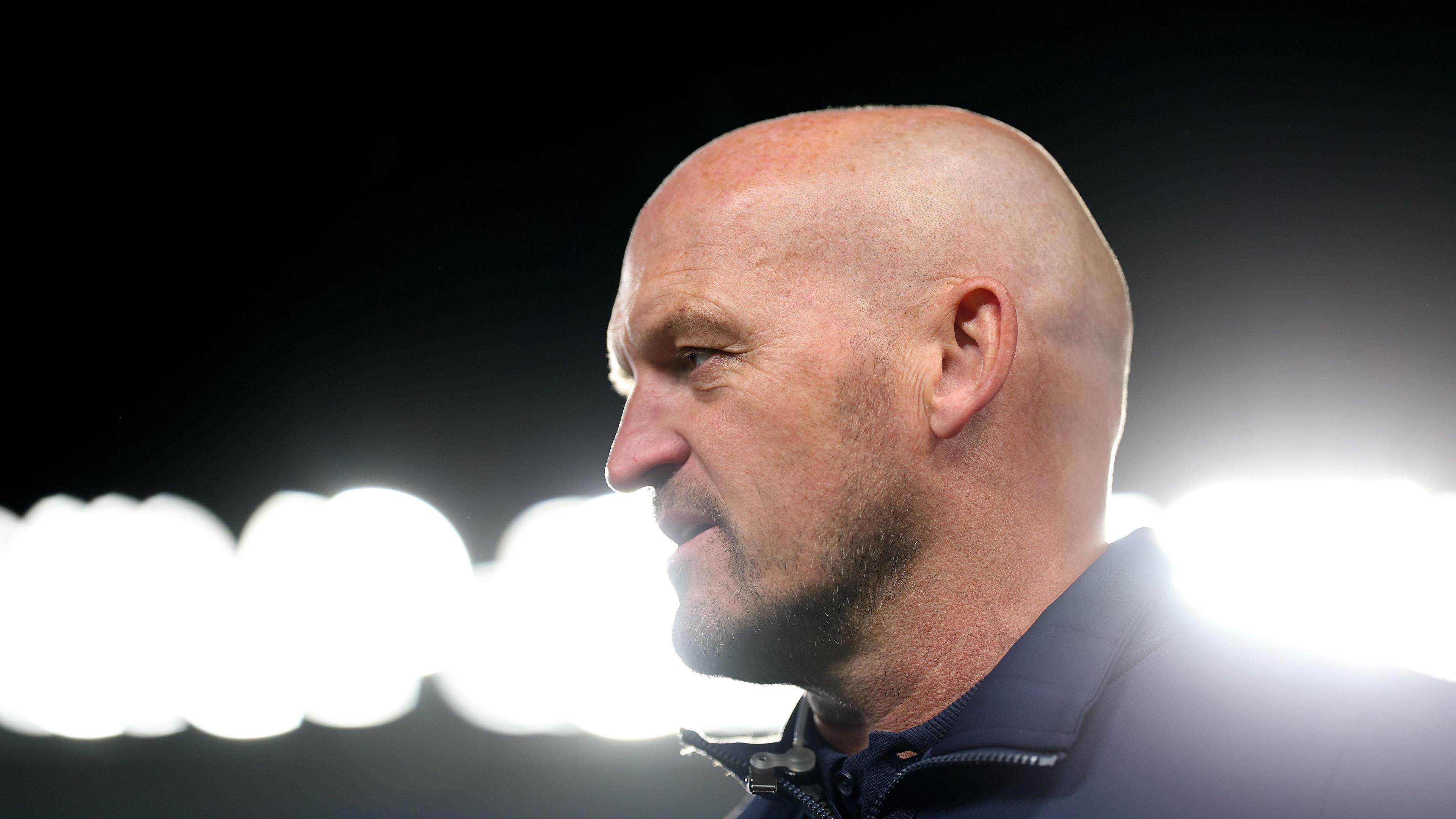Second-string shine but familiar problems for Scotland

Gregor Townsend has seen some fringe players impress but the manner of the loss to Fiji is a worry for the head coach
- Published
Two wins, one narrow and one commanding, and a bruising defeat.
It's been a mixed bag for Gregor Townsend and his players on their summer sojourn to the southern hemisphere.
Scotland were clinical against the Maori All Blacks, ill-disciplined against Fiji and dominated both sides of the ball against Samoa.
Most will focus on the humbling loss in Suva. The Scots were second best in every department, with a match plan that seemed to play to Fiji's strengths.
But remember, this is a squad without at least 10 first-choice players due to a combination the British & Irish Lions tour and injury.
And although the world rankings may have been harmed, the new World Cup format means Scotland will, most likely, not face another 'pool of death' like they did in 2023.
Maybe not too bruising in the end, then. Plus, there are plenty of positives. Let's look through them.
Second-string shines in New Zealand
"Those are the two best performances on tour, so we obviously like playing in New Zealand!" Townsend joked after the 41-12 win over Samoa in Auckland.
The first and last games of the tour were the matches in which far more game time was given to Scotland's back-up brigade and a fair few excelled.
"You rise to a challenge and you show your true identity when you've got that challenge of backing up a defeat and the players showed that," added Townsend.
"The way they came together during the week with just a six-day turnaround and one training session, they were really aligned and focused on delivering a better performance."
Andy Onyeama-Christie looked back to his best, with the back-rower returning from a horrific leg break sustained playing for Saracens last season.
Ollie Smith was another on the comeback trail and immediately made an impact. Given Scotland's lack of depth in the back-three, his recovery is a blessing.
Against Samoa, the midfield partnership of Stafford McDowall and Rory Hutchinson did their best impression of Sione Tuipulotu and Huw Jones, with McDowall equally adept at trucking forward like an angry rhino, or showing the delicate hands of a surgeon.
Another important relationship that blossomed was in the half-backs, between Jamie Dobie and Fergus Burke.
Although they struggled with the game plan against Fiji, the duo look to have cemented themselves as second-choice behind Lions' tourists Ben White and Finn Russell.
Dobie's inclusion in the starting XV against Fiji - his first Test start at nine - suggested a reshuffle in the scrum-half pecking order and his all-action performance against Samoa only boosted his chances.
At fly-half, there have been plenty of contenders for the second violin spot, but with Townsend saying Burke "is up there with the best 10s" it looks like he's going to get his shot in the coming months.

Fergus Burke and Jamie Dobie (right) started both Tests against Fiji and Samoa
Old ghosts continue to haunt
The problems in the loss to Fiji will keep Townsend awake at night.
While we saw the good stuff that has kept Scotland fans dreaming of a Six Nations triumph; smooth backline running and powerhouse performances in the back-row - there was also all the bad stuff that keeps crashing us back down to earth.
The ill-discipline was horrendous. Townsend called it "unusual" but the man in the middle was Ben O'Keeffe, a referee who once gave 17 successive penalties against Scotland.
Under enormous defensive pressure, teams do start to creak but at some stage, players and coaches have to wise up. Why were so many offsides given away? What are we doing that this referee doesn't like? Questions to be answered.
The set-piece also continued to struggle. Although hooker Ewan Ashman has been called up as cover for the Lions tour, the line-out has been a problem area for Scotland for a long while.
Without a decent set-piece, Scotland don't have a solid foundation to build upon. It has to be sorted before they can ever be Six Nations contenders.
There was also the shaky restarts, something that predates Townsend's eight years in charge. When spilled, or not gathered at all in some cases, any confidence from scoring at the other end immediately evaporates. They need to get over the nerves.
'Pool of death' unlikely at next World Cup
A lot was made of the game against Fiji and the damaging impact on ranking points.
It now looks a lot harder for Scotland to be inside the top six when the World Cup pools are drawn in December, something that Townsend admitted was the aim.
But what does finishing outside the top six actually look like now? It's certainly not the same as 2023, given the expanded 24-team edition of the next tournament.
The top two teams will go through from the six four-team groups, as will the four best third-placed teams.
That means it's highly likely that Scotland will qualify for the knockouts, regardless of whether they're in the top six or not.
Of course, if they were one of the best-ranked sides the group would be easier and give them a better path deeper into the tournament. But let's put one foot in front of the other first.
Now though, it's important to rest. "It's end of the season for a lot of guys, it's been a long season," Townsend said.
"They put their bodies on the line right to the last play of the game and they deserve a good rest."
After some of those bone-juddering, neck-snapping collisions in Suva, they'd be forgiven for sleeping in ice baths until the autumn Tests.